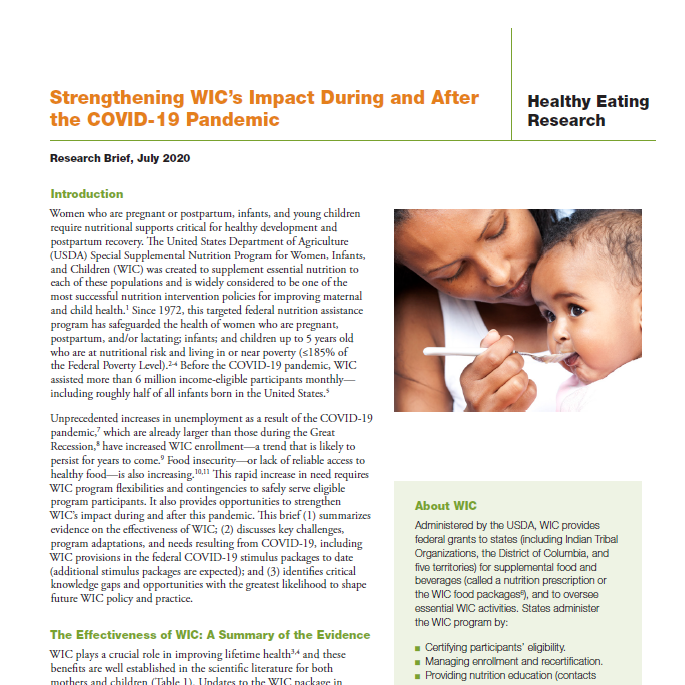Before the COVID-19 pandemic, WIC assisted more than 6 million income-eligible participants monthly, including roughly half of all infants born in the United States. Unprecedented increases in unemployment as a result of the COVID-19 pandemic, which are already larger than those during the Great Recession, have increased WIC enrollment—a trend that is likely to persist for years to come. Food insecurity—or lack of reliable access to healthy food—is also increasing. This rapid increase in need requires WIC program flexibilities and contingencies to safely serve eligible program participants. It also provides opportunities to strengthen WIC’s impact during and after this pandemic.
This brief (1) summarizes evidence on the effectiveness of WIC; (2) discusses key challenges, program adaptations, and needs resulting from COVID-19, including WIC provisions in the federal COVID-19 stimulus packages to date (additional stimulus packages are expected); and (3) identifies critical knowledge gaps and opportunities with the greatest likelihood to shape future WIC policy and practice.



